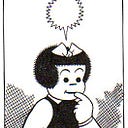The Bird and the Elephant
With Musk-era Twitter in turmoil, some users are seeking alternatives that scratch the familiar social-media itch. One popular alternative to 16-year-old Twitter is 6-year-old Mastodon, the decentralized open-source service that has grown rapidly since late October 2022, when Elon Musk took over Twitter.
I use both services (my handle on both is “Fritinancy”), but this story isn’t about my user experience or anyone else’s. Instead, I want to look at the two brand names. What distinguishes them? What do they evoke? What’s effective (or ineffective) about each? And how productive are they, linguistically speaking?
Twitter and Mastodon: How they’re alike
One word: animals.
Twitter’s name was inspired by birds, Mastodon’s by an extinct elephant-like mammal. Species-wise, quite distinct. But if we were playing Twenty Questions, both names would qualify as Animal.
Another kinship: Both names are “real” words that can be found in standard dictionaries. That puts them in a category apart from coined names like Instagram (a portmanteau of “instant” and “telegram”), LinkedIn (a novel compound of two dictionary words), and Kodak (a completely invented name).
Twitter and Mastodon also fit the category of suggestive names. (For more on suggestiveness, see The Five Types of Names.) Twitter suggests high-pitched birdsong, excitement, and the vibration of a mobile phone receiving a text message. Mastodon suggests enormous size…
